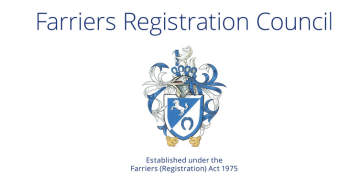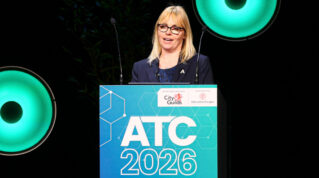Bosses have warned the chancellor’s budget tax hikes and rises to the minimum wage will wreck their plans for new apprentices.
Rachel Reeves vowed to rebuild public services as she announced £40 billion in tax rises last week, which included increasing employer national insurance contributions by 1.2 percentage points.
She also announced that from April the national living wage will rise 6.7 per cent from £11.44 to £12.21 an hour, while the apprentice minimum wage goes up 18 per cent to £7.55 an hour.
Business secretary Jonathan Reynolds admitted the increases were likely to impact companies’ ability to hire new staff.
An FE Week investigation has found early signs that apprentices are either being let go or recruitment is being put on hold in industries including hairdressing and early years.
A snap survey by the British Hair Consortium (BHC), shared exclusively with FE Week which gathered responses from 1,600 hair salon owners employing a total of 3,277 apprentices, suggested 95 per cent will now cut back on hiring to save money.
When asked how apprentices’ minimum wage increases would impact their apprentice plans, more than half said they would freeze hiring, and another quarter said they were likely to reduce their current headcount.
‘It’s not appealing’
Brooke Evans who runs BE Ironbridge, a hairdressing salon in Telford, Shrops, said it was now “very unlikely” she would take on further apprentices.
She added: “Other salons I’ve spoken to are unlikely to take on more because it’s not appealing.”
Evans has two apprentices working alongside seven stylists and estimates she has trained 10 apprentices in the last five years.
She said: “The increase in wage baffles me for apprentices because you put in so much time to get them to the right standard.
“They might qualify in two years, but we invest in them for six to 12 months to refine their skills enough.”
Employers in the early years sector also said the budget is likely to hit their hiring plans.
Lisa Evans, manager of Abacus Nursery and Childcare, recently hired two 16-year-old level 2 apprentices.
But she said: “Due to the announcements in the budget and the lack of appropriate funding, I will potentially only be able to offer them their level 2 and not be able to support them through to their level 3 as the rising costs will affect my sustainability within the setting.”
Budget detail
Under Reeves’ plan, employer national insurance contributions will rise from 13.8 per cent to 15 per cent and the salary threshold where contributions begin will fall from £9,100 to £5,000.
Meanwhile, the employment allowance for small businesses, effectively a discount on the overall national insurance bill, will increase from £5,000 to £10,500.
Employers also do not pay national insurance for apprentices under the age of 25 who earn up to £50,270 a year.
Wage rises positive ‘in theory’
Neil Leitch, chief executive officer of the Early Years Alliance, said that while “in theory” rises to minimum wages is positive news, combined with higher employer national insurance contributions it is “increasingly difficult” for businesses to remain viable.
Amy Alderson, director of early years specialist Aspire Training Team, which has more than 300 apprentices, said wage and national insurance increases “are posing a real challenge” for businesses.
She added: “As costs increase it’s crucial that employers remain committed to supporting apprenticeships, particularly in sectors like early years education where there’s already a staffing shortage.
“Scaling back on apprenticeships for short-term cost savings will ultimately harm the sector’s stability and growth, leaving both employers and the communities they serve at a disadvantage.”
Bad hair day
Toby Dicker, co-founder of the Salon Employers Association, whose members took part in the BHC survey, said salons were moving away from taking on apprentices “because there’s literally no money left”.
He argued that rising costs have pushed two thirds of the sector’s workers into the self-employed “gig economy”, meaning there are less employers who will take apprentices on a PAYE basis.
He added: “Any service-based industry is harder hit, but hairdressing more so because the apprentice doesn’t add any value initially.
“If you’re an apprentice painter or electrician or plumber, you can at least pass the tools and do those things.
“But an apprentice hairdresser is learning, they’re a student as far as we are concerned, but yet they’re regarded as workers by current administrations and government.
“A generation of employees will be gone – that’s what those numbers are telling us.”
Other sectors?
Apprentice training providers suggested employers in other sectors were also cutting back on hiring plans, but none were willing to go on record.
Luke Muscat, managing director of training provider B2W Group, said he had spoken to several senior leaders in industries such as insurance, IT and hospitality, who were considering “reducing hiring plans, recruitment and pay freezes, increasing automation and technology”.
He added: “They were not specifically against apprentices, but I think it will be young people and apprentices that find it hardest to compete as employers tighten their belts.”
















Your thoughts